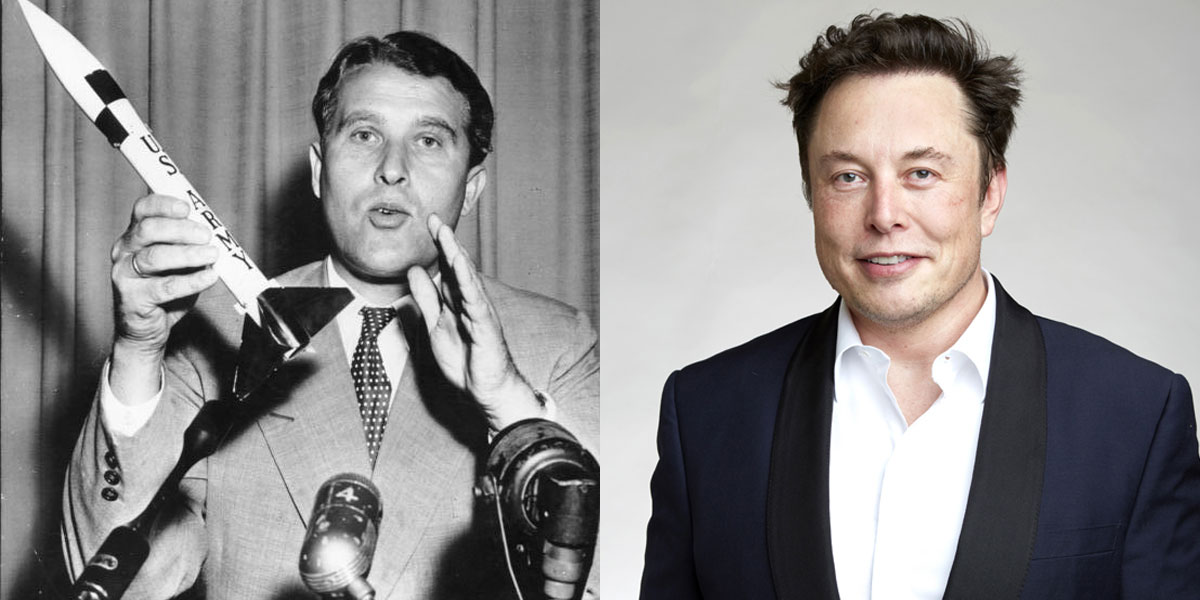Did a book written more than 70 years ago by American space pioneer Dr. Wernher von Braun predict that a man called Elon would lead a 10-man government of Mars colonies?
This story may not have received much attention except that billionaire Elon Musk is stepping out and being very public about his desire to colonize other planets and has spoken specifically of Mars. The book’s prediction was discovered a few years ago but has resurfaced on social media.
Dr. von Braun authored a book in 1948 while he was at Ft. Bliss, Texas, called Marsprojekt. The science fiction novel was published in German. Three years after Dr. von Braun relocated to Huntsville, the book was published in English by the University of Illinois Press in 1953 and titled, The Mars Project.
Dr. von Braun was one of the most influential engineers of the 20th century and served as the first director of Marshall Space Flight Center in Huntsville. He was a key figure in the development of America’s space program, which led to the historic accomplishment of landing humans on the moon. Von Braun also envisioned a manned trip to Mars following the excursion to the moon.
His book was highly technical in nature and provided the engineering basis for establishing an “enormous scientific expedition” that involved 10 spacecraft with 70 crew members that would return after spending 443 days on Mars before the trip back to Earth.
The book included 48 chapters describing in highly technical language the construction of three-stage ferry vessels, spaceships, landing boats, ferry flights and general logistics, power plant performance, and interplanetary radio communication.
In the late 1950s, a syndicated Sunday magazine supplement published excerpts from Mars Project. This magazine focused on Dr. von Braun’s philosophies on space flight and the future of humanity rather than the technical details of traveling to Mars.
In 2006, the science fiction novel from Dr. von Braun from 1948, which had gone unpublished, was released by a Canadian publisher of space-related historical science fiction as “Project Mars: A Technical Tale.”
Chapter 24 of this science fiction work is titled, “How Mars in Governed.” In one passage of that chapter, the book states: The Martian government was directed by 10 men, the leader of whom was elected by universal suffrage for five years and had the title of “Elon.” Two houses of parliament enacted the laws to be administered by Elon and his cabinet. The upper house was called the Council of the Elders and contained 60 people who were named to those positions for life by Elon.
In the author’s preface to this book, written by Dr. von Braun, he states the purpose (of the publication) is to stimulate interest in space travel.”
Seventy years later, Elon Musk, 50, is capturing a lot of interest for space travel in saying he is open about his wish to explore other worlds, tweeting recently that he wants to “‘make humanity a multiplanet species.” Musk is one of a handful of billionaires with plans to colonize the Red Planet within the next few decades. His company SpaceX recently became the first private outfit to launch NASA astronauts into space. And while SpaceX’s reusable rockets have only reached Earth’s orbit so far, the California company says that future craft will travel much farther.
Musk, who was named Time magazine’s Person of the Year for 2021, outlines his plan involving building an expansive fleet of Starship vehicles, which comprise a huge rocket topped by a bullet-shaped spacecraft. Starship is currently in development at a site in Texas and is designed to reach the Moon, Mars and beyond. SpaceX plans to reach orbit with the vehicle in an unmanned test flight in 2022. Billionaire Musk, who is also CEO of the electric car manufacturer Tesla, hopes to send a million people to Mars in his lifetime using a 1,000-strong fleet of the powerful rockets.
Musk is targeting a Mars cargo mission in 2022 and a manned flight to the Red Planet by 2024.
However, the team has a long way to go before they can conduct Starship’s first manned flight. A prototype Starship recently completed its first successful test flight and landing, reaching an altitude of 6.2 miles. The finished product will stand 165 feet tall and boast six of SpaceX’s powerful Raptor engines.













